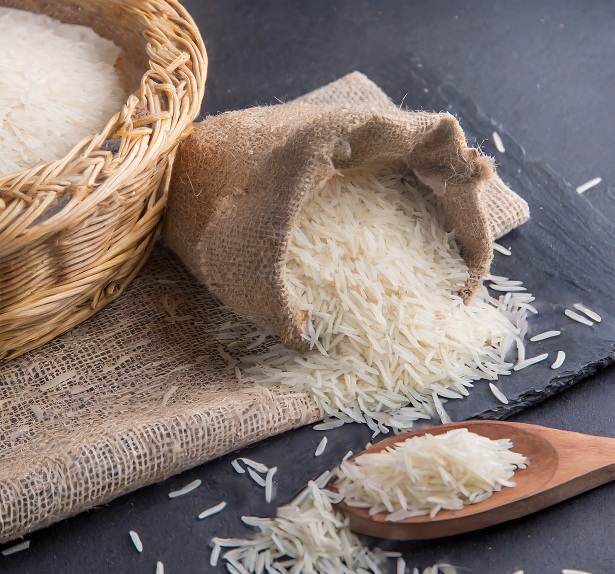Is basmati rice good for diabetics? Basmati rice has a lower glycemic index compared to some other types of rice, which means it has a smaller impact on blood sugar levels. The glycemic index (GI) measures how quickly a carbohydrate-containing food raises blood glucose. Foods with a lower GI are generally considered better for individuals with diabetes as they cause a slower and steadier increase in blood sugar. Is basmati rice good for diabetics?
However, it’s essential to keep in mind a few points.
-
Portion Control. While basmati rice may have a lower GI, portion control is crucial for managing blood sugar levels. Consuming large quantities of any rice, even Basmati, can lead to an increase in blood glucose.
-
Preparation Method. The way rice is prepared can also affect its impact on blood sugar. Opt for cooking methods that help maintain the rice’s low GI, such as boiling or steaming, rather than frying or excessive oil-based cooking.
-
Balanced Diet. Consider the overall composition of your meal. Including a variety of vegetables, lean proteins, and healthy fats along with basmati rice can help create a balanced meal that has a more favorable impact on blood sugar levels.
-
Consultation with a healthcare professional. Individual responses to foods can vary. Individuals with diabetes should consult with a healthcare professional or a registered dietitian to determine the most suitable dietary choices based on their specific health needs.
While basmati rice can be part of a diabetes-friendly diet, moderation and balance remain key. It’s also important to note that managing diabetes involves a comprehensive approach, including regular physical activity, medication management (if prescribed), and regular monitoring of blood sugar levels.
Is basmati rice good for diabetics?
Let’s delve into more details regarding basmati rice and its suitability for individuals with diabetes.
Basmati rice and diabetes
-
Glycemic Index (GI). Basmati rice has a lower glycemic index compared to some other types of rice. The glycemic index of a food indicates how quickly it raises blood sugar levels. Foods with a lower GI are generally considered better for individuals with diabetes, as they lead to a slower and more controlled increase in blood glucose.
-
Fiber Content. Basmati rice contains more fiber than some other varieties of rice. Fiber is beneficial for individuals with diabetes, as it helps slow down the absorption of sugar and contributes to better blood sugar control.
-
Nutrient Content. Basmati rice is a good source of complex carbohydrates, which are broken down more slowly in the body, providing a steady release of energy. It also contains some essential nutrients, like B vitamins and minerals.
Tips for Diabetes-Friendly Consumption.
-
Portion Control. Controlling portion sizes is crucial for managing blood sugar levels. A standard serving size is about 1/3 to 1/2 cup of cooked rice.
-
Choose whole-grain basmati rice. Whole grains, including whole-grain basmati rice, retain more of their natural fiber and nutrients. This can have additional benefits for individuals with diabetes.
-
Pair with vegetables and protein. Combining basmati rice with a variety of vegetables and lean protein sources can help balance the meal. This can further slow down the digestion process and reduce the overall impact on blood sugar levels.
-
Optimal cooking methods. Choose cooking methods that help maintain the rice’s low glycemic index. Boiling and steaming are preferable to frying or cooking with excessive oil.
-
Regular monitoring and professional advice. Individuals with diabetes should regularly monitor their blood sugar levels and consult with healthcare professionals, including dietitians or nutritionists, for personalized advice based on their health status, preferences, and lifestyle.
General Dietary Guidelines for Diabetes.
-
Balanced Meals. Aim for balanced meals that include a mix of carbohydrates, proteins, and healthy fats.
-
Regular meals and snacks. Consistent meal timing and incorporating healthy snacks can help regulate blood sugar levels throughout the day.
-
Limit refined carbohydrates. Minimize the consumption of highly processed and refined carbohydrates, as they can lead to rapid spikes in blood sugar.
-
Physical Activity. Regular physical activity is beneficial for managing blood sugar levels and overall well-being.
Remember that individual responses to food can vary, and it’s essential for individuals with diabetes to work with healthcare professionals to develop a personalized and effective dietary plan.


